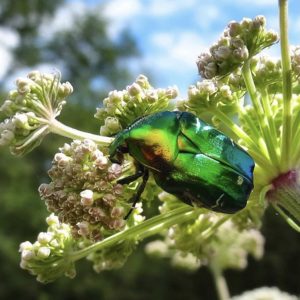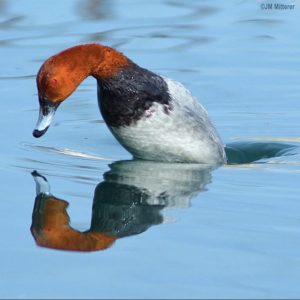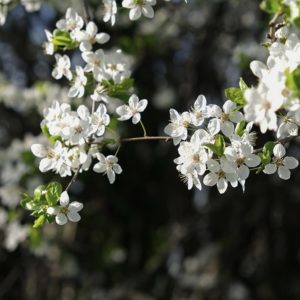Events | World Environment Day
World Environment Day
In 1972, the UN General Assembly designated 5 June as World Environment Day (WED). The first celebration, under the slogan “Only One Earth” took place in 1973. In the following years, WED has developed as a platform to raise awareness on the problems facing our environment such as air pollution, plastic pollution, illegal wildlife trade, sustainable consumption, sea-level increase, and food security, among others. Furthermore, WED helps drive change in consumption patterns and in national and international environmental policy.
2024 Theme: Land restoration, desertification and drought resilience
The 2024 edition of World Environment Day will focus on land restoration, desertification and drought resilience, as the year marks the 30th anniversary of the UN Convention to Combat Desertification.
According to the UN Convention to Combat Desertification, up to 40 per cent of the planet’s land is degraded, directly affecting half of the world’s population and threatening roughly half of global GDP (US$44 trillion). The number and duration of droughts has increased by 29 per cent since 2000 – without urgent action, droughts may affect over three-quarters of the world’s population by 2050.
Land restoration is a key pillar of the UN Decade on Ecosystem Restoration (2021-2030), a rallying call for the protection and revival of ecosystems all around the world, which is critical to achieve the Sustainable Development Goals.
2024 Host Country: Saudi Arabia
Each year, World Environment Day is hosted by a different country in which official celebrations take place. The host country for 2024 is Saudi Arabia, which will host the sixteenth session of the Conference of the Parties (COP 16) to the United Nations Convention to Combat Desertification (UNCCD), from 2 to 13 December 2024.
Desertification, Land Degradation and Drought, and the Role of Geneva
As a global hub for environmental governance, Geneva plays an important role in the global response to desertification, land degradation, and drought (DLDD). With leading organizations on environmental issues, nature conservation, water, health, human rights and many relevant areas of work, Geneva hosts a strong expertise to contribute to global processes tackling DLDD. From addressing the impacts and preventing the risks posed by this crisis on people and the planet to developing policies to halt DLDD, stakeholders from Geneva also play a role in making links to address other environmental crises.
2024: Activities in Geneva
Events
Events by partners in Geneva as well as other activities throughout the week with the participation of various stakeholders are indicated in this section.
Outdoor Activities
World Environment Day is the perfect occasion to explore the nature in your surroundings. Discover our suggestions below and find many more on the platform “Dans ma nature” from the Canton of Geneva. For hiking lovers, the interactive map from SwissMobile highlights national, regional and local hiking trails.

Nature Centre Pointe-à-la-bise
The Nature Centre Pointe-à-la-bise is located in the heart of a unique nature reserve on the shores of Lake Geneva. This exceptional natural area is home to a magnificent reed bed which is the home to many wild species.
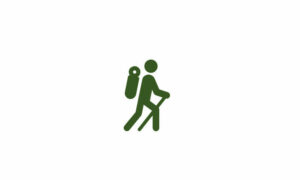
Nature Centre Vallon de l'Allondon
The Nature Centre of the Allondon Valley is an open door to discover the wonders of nature, located in an exceptional site on the banks of the Allondon, a tributary of the Rhône and an important floodplain biotope. It offers various fun, educational and relaxing activities related to nature. A hiking path also follows the river.

Bioparc Genève
The wildlife park Bioparc in Bellevue is the opportunity to discover local and exotic animal species, and learn more about conservation. The park is home to 250 animals, a third of which are threatened species in the wild.
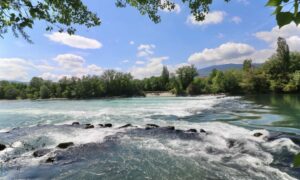
The Rhone hiking path
From Jussy to Anières, a walking route takes you through one of the most beautiful regions in the Canton of Geneva. Along the way, discover vineyards, mountain views, the lake and, of course, biodiversity with a variety of bird species.
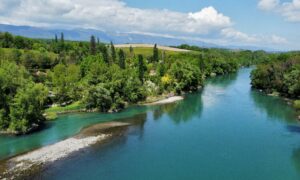
Hike in Geneva Far West
This path will let you explore the far west of Geneva, to the westernmost region of Switzerland and to the famous border stone no.1. The path follows historic routes, with a beautiful view of the Rhone, for a quiet moment in nature.
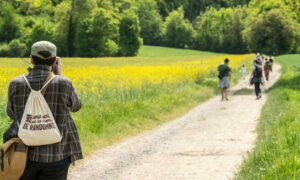
Hike in the countryside of Geneva
From Jussy to Hermance, a walking route takes you through one of the most beautiful regions in the Canton of Geneva. Along the way, discover vineyards, mountain views, the lake and, of course, biodiversity with a variety of bird species. A part of this part (Corsier – Hermance) is wheelchair accessible.
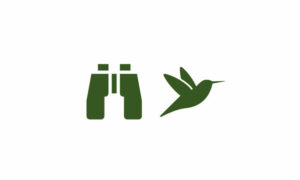
Birdwatching in the Marais du château
The local river Seymaz is an important biodiversity hotspot following its renaturation project by the Canton, which allowed to restored 4 hectares of wetlands. The “Marais du château” (Castle Marsh) is a nature reserve managed by Pro Nature Genève and an ideal location to go birdwatching.

Biking Saturdays
Pro Vélo Genève offers guided biking tours and repair workshops on Saturdays. On 4 June, one of the organized bike tour will explore gardens around Geneva will poetic breaks to appreciate the natural world.
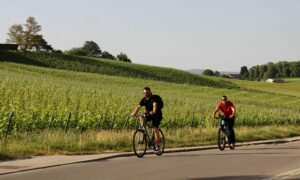
The Green Cycling Route
The Green Route brings you from Schaffhausen to Geneva in 7 routes, letting you discover six regional natural parks on your bicycle. Route 7 brings you from Le Sentier to Geneva, it is 68.9 km long.
Exhibitions
More information coming soon.
2010 – 2023
2023 | Solutions to Plastic Pollution
The 2023 edition marked the 50th anniversary of World Environment Day, and focused on solutions to plastic pollution, using the hashtag and slogan #BeatPlasticPollution. With available science and solutions to tackle the problem, governments, companies and other stakeholders must scale up and speed actions to solve this crisis. This underscores the importance of this World Environment Day in mobilizing transformative action from every corner of the world. A resolution was adopted in 2022 at the United Nations Environment Assembly to develop a legally binding instrument on plastic pollution, including in the marine environment, with the ambition to complete the negotiations by end of 2024.
2022 | Only One Earth
The World Environment Day 2022 global campaign #OnlyOneEarth calls for transformative changes to policies and choices to enable cleaner, greener, and sustainable living in harmony with nature. It will focus on the need to live sustainably in harmony with nature, and our possibilities for shifting to a greener lifestyle through both policies and individual choices. “Only One Earth” was the motto for the 1972 Stockholm Conference. 50 years on, the motto is as pertinent as ever – this planet is our only home, and humanity must safeguard its finite resources.
2021 | Ecosystem Restoration
Launch of the UN Decade on Ecosystem Restoration. A call for the protection and revival of ecosystems all around the world, for the benefit of people and nature. It aims to halt the degradation of ecosystems, and restore them to achieve global goals. Only with healthy ecosystems can we enhance people’s livelihoods, counteract climate change, and stop the collapse of biodiversity.
2020 | Time for Nature
A call to action to combat the accelerating species loss and degradation of the natural world. One million plant and animal species risk extinction, largely due to human activities. Recent events, from bushfires in Brazil, the United States and Australia to locust infestations across East Africa – and now, a global disease pandemic – demonstrate the interdependence of humans and the webs of life in which they exist. Nature is sending us a message.
2019 | Beat Air Pollution
A call for action to combat one of the greatest environmental emerging challenges of our time. Often you can’t even see it, but air pollution is everywhere and affects your health from head to toe. With every breath, you are probably sucking in tiny particles that attack your lungs, heart and brain.
2018 | Beat Plastic Pollution
The aim was for people to strive and change their everyday lives to reduce the heavy burden of plastic pollution. People should be free from the over-reliance on single-use or disposables, as they have severe environmental consequences. In addition, we should liberate our natural places, our wildlife and our own health from plastics.
2017 | Connecting Nature to People
In the city and on land, from the poles to the equator, it encourages worldwide awareness for the protection of our environment.
2016 | Go Wild for Life
The campaign aimed to reduce and prevent the illegal trade in wildlife.
2015 | Seven Billion Dreams. One Planet. Consume with Care.
This was the slogan picked through a voting process on social media.
2014 | International Year of Small Islands Developing States (SIDS)
The UN General Assembly aimed to highlight the development challenges and successes of the SIDS, focusing on global warming and its impact on ocean levels. The slogan was “Raise your voice not the sea level” for this year.
2013 | Think. Eat. Save.
The campaign addressed the huge annual food waste and loss. With the amount added together, it would release a large quantity of food as well as reduce carbon footprint. The theme also aimed to empower people to make informed choices about the food they eat so as to reduce the overall ecological impact due to the worldwide production of food.
2012 | The Green Economy
The campaign invited people to examine their activities and lifestyle and see how the concept of a “Green Economy” fits into it.
2011 | Forests: Nature at Your Service.
Activities were organized with clean-ups, concerts, exhibits, film festivals, community events, tree plantings and much more.
2010 | Many Species. One Planet. One Future.
Celebrating the diversity of life on Earth as part of the 2010 International Year of Biodiversity.

